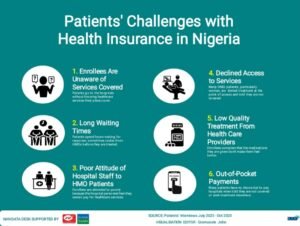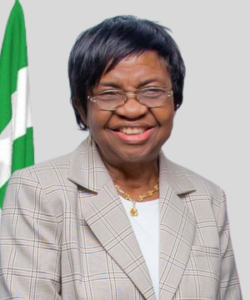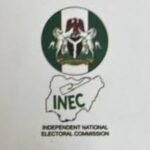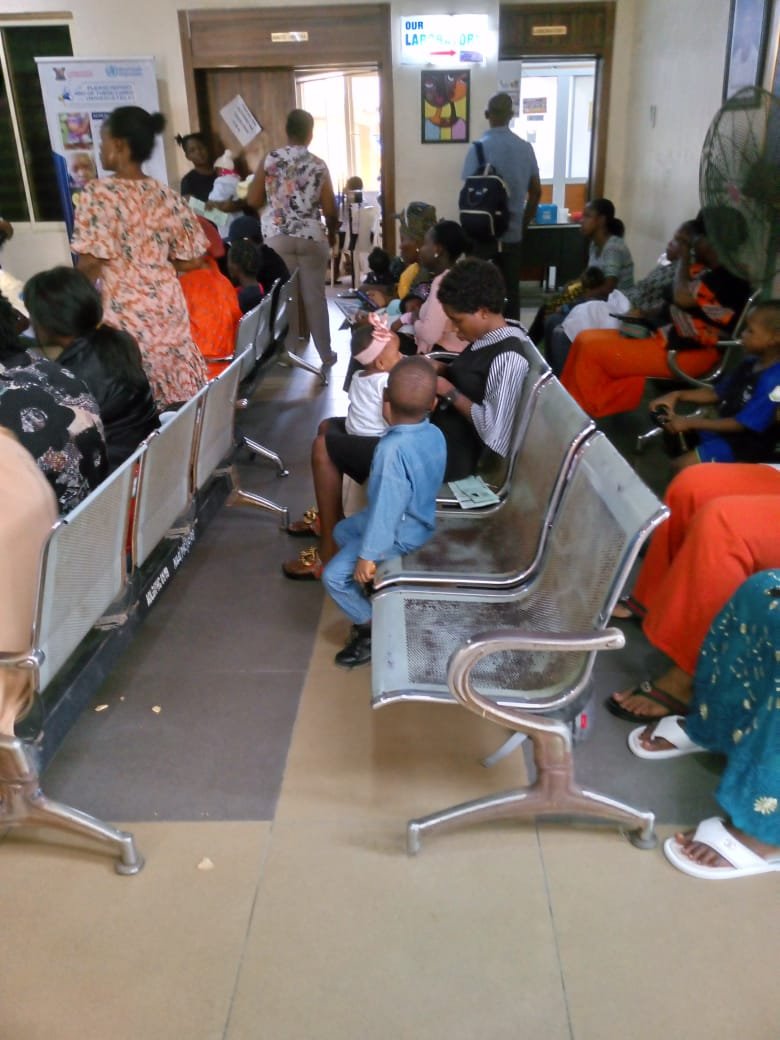
SPECIAL REPORT: How HMOs fail women needing critical healthcare
By Joan Odafe
Flowerbudnews: Sometime in 2019, three-month-old pregnant Rukayat Olapade felt unusual stomach pains and loss of appetite.
Concerned about her well-being and relying on her health insurance with AXA Mansard, 31-year-old Olapade sought medical attention from her healthcare provider, Mercy Group Clinics in Abeokuta Ogun state, when the pain persisted.

(Festac Primary Healthcare Centre Amuwo Odofin Council in Festac Town)
At the hospital, Olapade presented her Health Maintenance Organisation (HMO) Identity card and despite providing answers to a few questions, she was denied treatment.
Olapade says because of the urgency of the situation she paid for the treatment. After the treatment, her husband who was the main applicant requested for a refund but the hospital management declined.
Olapade’s story is not an isolated one, many enrolees of health insurance in Nigeria voice their grievances in the pursuit of adequate healthcare service.
These concerns transcend gender, geographic regions and age demographics. The situation has more impact on women than it does on men.

A man can go to the hospital for malaria treatment and decide after waiting a long time for an approval code to buy medication from a pharmacy.
A pregnant woman in the same situation would endure the long wait to avoid putting herself and her baby at risk. Nike Omotoyinbo, a pregnant civil servant in Lagos state, needed to have an ultrasound scan before delivery but was told at the hospital she had exhausted her HMO contribution.
Omotoyinbo paid for the scan because the outcome was important for her survival and of her unborn child. Mercy Odion, a journalist, went to the hospital for an undisclosed health challenge, there was a delay in confirmation of her access to treatment from her HMO which resulted in her paying out-of-pocket because of the urgency of the issue.
When Kristine Obi (not real name) went for a refill of her medications, she was shocked to learn from her provider, Golden Cross Infirmary, that she could not access the service because she was no longer registered with the facility. Anchor HMO did not communicate to the hospital nor her before she was taken out of the insurance scheme.
A week earlier, Anchor HMO had notified her about a medication delivery and inquired if she could personally receive it. Sometimes they ask her to pick up medication from a nearby pharmacy. Upon arriving home, she found the delivered medications for a two-month supply, a routine occurrence.

However, when she was denied access to treatment later, Obi contacted Anchor HMO helpdesk to register a complaint and was advised to request her healthcare provider to send a message informing them of the problem.
Golden Cross Infirmary told her she was not the first case they had experienced that day from Anchor HMO and did not understand what was happening. At that point, Obi decided to use her NHIS health insurance.
Though she paid the 10 per cent co-payment fees, she was happy for the alternative instead of paying out-of-pocket outrightly.Two weeks after, she called Anchor HMO back to get an update and was told they did not understand what happened because from their backend everything was clear.
She was asked if she would like to change her hospital provider.Dr Patrick Korie, Managing Director, SUNU Health in Yaba, Lagos, said asking a health insurance patient to pay before care is given is unacceptable and unethical.
He said a hospital that agrees to deal with health insurance enrolees has a duty to provide basic and specialist medical services at first point of contact. “At the entry point, that patient should first see a doctor and be rendered the minimum care.
If there’s need for specialised care that is when you start contacting the HMO or asking for code.” Korie advised enrolees to always contact their HMOs immediately if faced with such situations.
A Women Radio Centre survey conducted during investigations suggested that the desired expectations of individuals with health insurance is still incredibly low. The poll showed that 65 per cent of those with health insurance were covered by the NHIS. 65.4 per cent disclosed they had been declined service by their healthcare provider. 61.5 per cent acknowledged they paid out-of-pockets for treatment and services their plan covered.

Investigations also revealed that declined services affects enrolees so much they feel stressed. Olamide Fajems, a brands manager said she had to source funds to run a test when she fell ill because she could not afford the bill when the service was declined by the hospital.
Ogonna Felicitas, a student at University of Ilorin, recounted how she sought funds to cover her treatment expenses when her condition worsened. Eventually, she had to run another test and ended up paying more for subsequent treatment.Dr Celestine Okorie, Health Reform Foundation of Nigeria (HERFON), said complaints from stakeholders’ border around lack of accountability in the health insurance sector.
According to Okorie, everyone in the health insurance ecosystem, including the Federal Government, National Health Insurance Authority (NHIA), HMOs, healthcare providers and enrolees have a critical part to play to ensure accountability.
“If we want to get a better health insurance performance, we must take accountability issues seriously because where there are sharp practices everywhere, it reduces the performance of the system.”
Okorie said some key issues in Nigeria’s health insurance that HERFON identified during their accountability reviews include lack of transparency, delayed payments, lack of approval for referrals, delayed periodic review of payments and deliberate treatment with drugs not included in the NHIA approved list.
Other challenges identified are inflation of bills for enrolees on co-payment plan, non-disclosure of total number on list of enrolees, enrolees not knowing what their plans cover and inclusion of unregistered relations for treatment by enrolees.
Okorie stated that “NHIA makes quarterly payments to the HMOs, who are expected to pay monthly capitations to health facilities. Instead of paying providers, HMOs deliberately delay making appropriate payments so they can invest the funds for a few months for profit.

Many HMOs don’t give enrolees approval to access treatment when referred to secondary facilities, even when the services are covered by NHIA.”Women and children are adversely affected by this lack of accountability in the health insurance ecosystem because they are among the vulnerable population.
The World Health Organisation (WHO) identifies ten major health issues affecting women, including cancer, sexually transmitted infections, reproductive, maternal and mental health.
Women in Nigeria are more prone to all these diseases than their counterparts in other countries because of limited access to basic healthcare facilities. Therefore, universal health coverage (UHC) is important for everyone to access quality, safe, effective and affordable essential health services, medicines and vaccines with protection from financial risks, the report notes.
To achieve UHC, NHIA was established for financial access to quality healthcare in Nigeria. The HMOs were charged to serve as intermediaries between hospitals and clients seeking healthcare services while NHIA acts as a regulator.
The HMOs have the responsibility of managing the provision of affordable, accessible and standard healthcare services through a network of hospitals under their plans. While the NHIA Act 2022 mandates all Nigerians and legal residents to be part of the scheme, many Nigerians are yet to be enrolled despite its existence for over 20 years.
A vast majority still must pay out-of-pockets for medical care. There are conflicting figures on the actual number of people with health insurance in Nigeria.

According to Dataphtye, 97 per cent of Nigeria’s population is not covered by any kind of health insurance. The three per cent (3%) of the population who have health insurance are provided for by employee health coverage.
Unsurprisingly, of the three per cent of Nigerians with health insurance, men have more insurance coverage than women as 56.7 per cent of those covered are male as against 43.3 per cent of the women.
Healthcare experts also do not give more assuring estimates. Dr Leke Oshunniyi, Chairman, Health and Managed Care Association of Nigeria (HMCAN), said about five per cent of Nigerians, one in twenty have health insurance.
Although the United Nations (UN) Member States pledged to achieve UHC by 2030 as part of the Sustainable Development Goals, achieving this goal in Nigeria remains a distant aspiration.
Nigeria’s coordinating Minister of Health and Social Welfare, Prof. Muhammad Pate, during the unveiling of the NHIA Operational Guidelines, said Nigeria has less than 10 per cent being covered presently by health insurance but implementation of the programme will ensure more Nigerians are covered.
Though the number of Nigerians with health insurance is uncertain, Prof. Mohammed Sambo, former Director-General, NHIA, says the Renewed Hope Agenda of President Bola Tinubu has considered providing coverage for at least fifty million Nigerians within his tenure.
The World Health Organisation (WHO) estimates that every year 100 million people are pushed into poverty and 150 million people suffer financial catastrophe because of out-of-pocket expenditure on health services.
Unfortunately, this is the current reality for many Nigerians as they either do not have health insurance and for those who have, healthcare services are not always accessible and of required standard, leading them to pay out-of-pocket because of unmet expectations.
Sambo says the NHIA Act, which is a legal basis for mandatory participation and the establishment of the Vulnerable Group Fund will strengthen the capacity of the authority to ensure financial access to quality, healthcare services for all Nigerians, in line with Sustainable Development Goal (SDG) three and contribute to poverty reduction. In a recent interview on CNBC Africa, Pate said the private sector, donors and philanthropists need to contribute towards covering of the poorest populations, which included traders and bus drivers.
Pate said funds from the Basic Health Care Provision Fund (BHCPF), which would be channelled toward NHIA, alone, will not be enough to protect those who may not be formally employed from catastrophic health expenditures they will accrue if sick.Infographic:
Joan Odafe Unmet expectations Dr Richard Kalada, Chief Executive Officer of the Institute for Healthcare Finance and Management, emphasises that 70 per cent of a patient’s recovery depends on how they are treated, starting from the front desk.
Kalada advocates for a customer-centric approach in healthcare services, stating that patients expect safe, timely, effective, and equitable care that is also patient-centred. “When patients are unwell and visit the hospital, many are fearful and uncertain about their condition.” Kalada notes that some patients already have preconceived ideas about their ailments.
He however maintains that satisfaction is achieved when patients’ expectations are not only met but exceeded. This is however not the case for many HMO patients who complain about issues including declined services, risk of long waiting and response times, substandard treatment using generic medications instead of branded ones, lack of communication and poor attitude of hospital staff toward enrolees. Generic and branded medications One major concern of most enrolees is the dispensing of generic drugs even when the branded ones were prescribed.
Olaitan Idris had to personally cover the cost of N288,000 for twelve injections administered to treat her son due to the hospital’s insistence on using branded medications.
The generic alternatives were deemed ineffective, raising concerns among enrolees about the efficacy of generic drugs. Dr Oshunniyi, MD/CEO of AIICO Multishield HMO, highlights the challenge of meeting patients’ lofty expectations with comparatively low premiums.
To address affordability, the NHIA partnered with twelve local pharmaceutical firms, aiming to ensure the availability of quality and affordable medicines, promoting confidence in generic medications.
Prof. Mojisola Adeyeye, the Director-General of the National Agency for Food and Drug Administration and Control (NAFDAC), emphasised that the branding of thirty-three pharmaceutical products will play a crucial role in curbing the spread of substandard and falsified medical products.

(Prof. Mojisola Adeyeye, NAFDAC Director General)
These medicines will undergo testing in the WHO-Prequalified NAFDAC laboratory, and the agency commits to ongoing monitoring to ensure their exclusive use within the country’s healthcare facilities while preventing unauthorised sale.
Discrimination against health insurance enrolees Olapade says health insurance enrolees are discriminated against and treated as though they cannot afford their treatments.
She recalls an experience when a doctor prescribed drugs for her child, who was stooling and vomiting, but the pharmacist told his colleague to go and tell the doctor they were HMO patients and he cannot give them the medication.
“The doctor changed it but I requested he writes the first one he prescribed so that I could buy it on my own, which I did.” Patricia Emmanuel, not real name, Head of Claims at an undisclosed hospital, says the reason for the discrimination is because private patients pay instantly while NHIA have services under capitation.
“We also have HMOs that will not pay bills for months but the private patients pay immediately.”Poor Feedback Culture Another complaint of enrolees was inadequate communication between them and the HMOs. Investigations show that though many HMOs have websites and social media platforms, there is little engagement with their clients. Some enrolees’ requests were observed to be ignored or complaints unresolved weeks after posting. Hygeia HMO’s Facebook page showed that there was a daily update on health education tips sensitising clients to adopt proper lifestyle options. Observations of about a month’s post showed that most of the posts did not have likes nor comments, a few did not have any views. On August 12, 2023 there was a post from Haske Maganin Duhu, alleging that the organisation did not have good customer service, adding that he sent a message which had not been addressed for three weeks.
On the NHIS Official Twitter account, @Adeluv822 alleged on August 20, 2023 that NHIS patients were not receiving medical attention at First Alpha Hospital in Abeokuta due to a management decision.
As of September 16, 2023, there was only one comment on his post, from another enrolee, advising him to change his HMO. Reliance Health Nigeria (Reliance HMO) posted a testimonial from one of its client’s, Taofiqat Habbeeb, on its Facebook page on August 21, 2023, praising the organisation for its quick response time.
On September 4, 2023, the organisation posted a testimonial from another client, Nkem Adekunle, praising the HMO for quality service, particularly in prompt remittance of hospitals claims. However, some of its enrolees disagreed with the posts by publicly posting their displeasure about alleged wrongdoings.
On September 11, 2023, Engineer Izuogu David Onochie commented on the post with: “Liars. You guys are very unreliable. Most especially when it comes to delivery. You guys are so sneaky and use apology to cover up. Yet saying sorry and still continue in the same act.” Another enrolee, Uzor Nkasiobi Onwugbufor wrote: “My medication has been pending for six days now for drugs that are a matter of urgency. I keep hearing they will escalate to the team in charge. You have been escalating for six days.
What a shame.” To which, the HMO’s response was an apology, adding that it was not their usual practice.HMO response to allegationsDr Ademola Yusuf, a Family Medicine Physician, says one of the issues that need to be resolved is the vetting of already agreed tariff. Yusuf said the hospital conducts some laboratory investigations that helps with diagnosis and treatment, yet the HMOs would not pay, even after explanations. According to Dr Makinde Akinlemibola, Chairman, Association of Nigerian Private Medical Practitioners (ANPMP), the major problem with health insurance is the capitation. Capitation is a fixed amount of fees, usually paid monthly to health care providers by HMOs for providing services to patients.
“The capitation of N750 per individual monthly currently being paid was determined by actuarial survey done many years ago and have become obsolete making it seem like the healthcare providers are giving out services at a loss.
The inflation rates of Nigeria in about six months, rising cost of medications and removal of fuel subsidy has worsened the situation.” According to the National Bureau of Statistics (NBS) (September 2023), the headline inflation rate increased to 26.7 per cent relative to the August 2023 headline inflation rate which was 25.8 per cent. Looking at the change, the September 2023 headline inflation rate showed an increase of 0.92 per cent points when compared to the August 2023 headline inflation rate. “On a year-on-year basis, the headline inflation rate was 5.94 per cent points higher compared to the rate recorded in September 2022, which was 20.77 per cent.”
Akinlemibola emphasised that the situation would not improve until HMOs put pressure on the regulatory authority to make them realise the current capitation was no longer realistic. Dr Olabode Bakare, Medical Director, Bee Hess, revealed that some cases were different in terms of presentation, and the private HMOs would understand those are exceptional cases but there was no room for interaction with the NHIA regarding the tariff.
“Recently we had a case of prostatectomy and we’re expected to do it for N100,000. There is no healthcare provider that can get a urologist to stay on ground. A urologist will not take N200,000 from you.” Bakare suggests NHIA provides a channel for interaction regarding certain health conditions. How health insurance worksStakeholders say there is no health insurance plan that covers every eventuality because the plans are of different degrees. According to Oshunniyi, the most difficult problems in running health insurance schemes is that the enrolees do not understand that their plans cannot cover all their medical expectations. Calculations that look at certain factors including age, population size, which are critically important, are done to ensure a win-win situation for all parties involved.

For health insurance, the population is mostly taken into consideration to pre-determine how many people will need treatment for certain conditions. The cost of treatment is summed up and divided through the number of the population to get the premium. Payment is then made in advance for the possibility of misfortune, which can be remunerated by cash.
“If I sell a plan for N50,000 per annum and say the limit of liability on it, that is the amount that can be spent on it is two million Naira and communicate it to the HR manager of a company. “Sometimes the enrolees assume the company has paid two million Naira per person for the plan and they want service worth two million. It does not work that way.” Noting the similarities with car insurance, Oshunniyi says “if 10 people buy new cars worth N10 million Naira each, amounting to N100 million Naira and they pay two million Naira each to insure the car, totalling N20 million Naira, with an understanding that in case of car loss or accident, there will be a refund, before the offer is made, the insurance marketer already knows that it’s unlikely or at most, one person out of the 10 people would lose a car. So, money for accidents or other eventualities will be taken from the pool of funds, leaving the insurer with the rest.”Basic minimum coverageIf no health insurance plan can cover all eventualities, what should be the basic minimum coverage for HMO patients? Akinlemibola says determining what the basic health coverage should be still boils down to the capitations being paid, adding that the current rate of N750 per individual per month has made it challenging to meet up with the current healthcare realities. He explained further that the pool of funds from the substantial number of enrolees, with no more than 15 per cent accessing healthcare per time has made it easier for the healthcare providers to absorb the weight of the economic issues. According to him, the capitation was increased once in the last 15 years and called for urgent increase and that the proposal from the healthcare providers that capitations should be reviewed to N1,500 per individual per month was no longer feasible with the current economic situation in the country. Acknowledging that not every condition can be covered, Okorie asserted that there should be a special plan for diseases such as cancer, kidney disease and other conditions that require long time hospitalisation and costs.
He said the basic minimum plan should cover common infections, malaria, tuberculosis, HIV/AIDS, prevention of non-communicable diseases like hypertension, diabetes and their early detection for better outcomes. Others include minor surgeries such as appendectomy and injuries from cuts, antenatal and postnatal care, maternal, child, sexual and reproductive healthcare.
In addition, he stated that certain laboratory facilities must be provided to conduct microscopy, culture, sensitivity and other blood tests.Arbitration Highlighting concerns, Oshunniyi revealed that it is a monthly process of HMOs to recover funds from their clients to meet obligations.
The operationalisation of the NHIA Act 2022 is anticipated to address challenges in Nigeria’s health insurance system, particularly regarding disputes and corporate non-compliance. The Act mandates a dispute resolution process involving NHIA mediation, conciliation and arbitration. This requires one-month notice before legal action and protects NHIA staff from litigation. Concerns arise over disclosing the complainant’s residential address.
The Act claims to enhance accountability and enforcement within the health insurance framework, potentially mitigating longstanding issues in the sector.
Way forward:
Dr Celestine Okorie emphasises the necessity of a citizen-led accountability framework to address issues in Nigeria’s health insurance system. He believes that increased scrutiny from civil society will encourage compliance as he calls for public education to enhance participants’ understanding of coverage.
Akinlemibola proposes regular reviews of capitations to prevent financial strain on healthcare providers while Yusuf suggests HMOs engage clients to manage rising healthcare costs and maintain positive relationships.
Glory Adejoh calls for constructive collaboration between HMOs and providers regarding prompt updates of clients’ information and treatment codes, to prevent delays and complications during emergencies. Oluwatope Lawanson also suggests that HMOs assess the providers regularly through their clients’ feedback to help improve the quality of care given.
This report was done with support from The Women Radio Centre and MacArthur Foundation. (Flowerbudnews)








